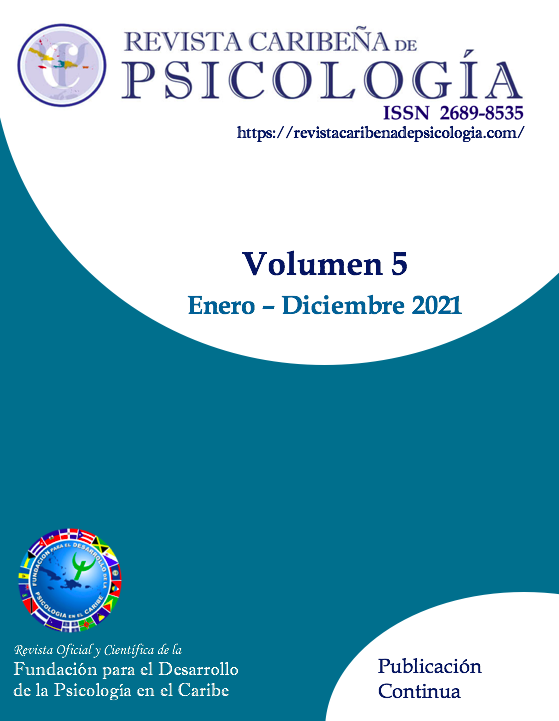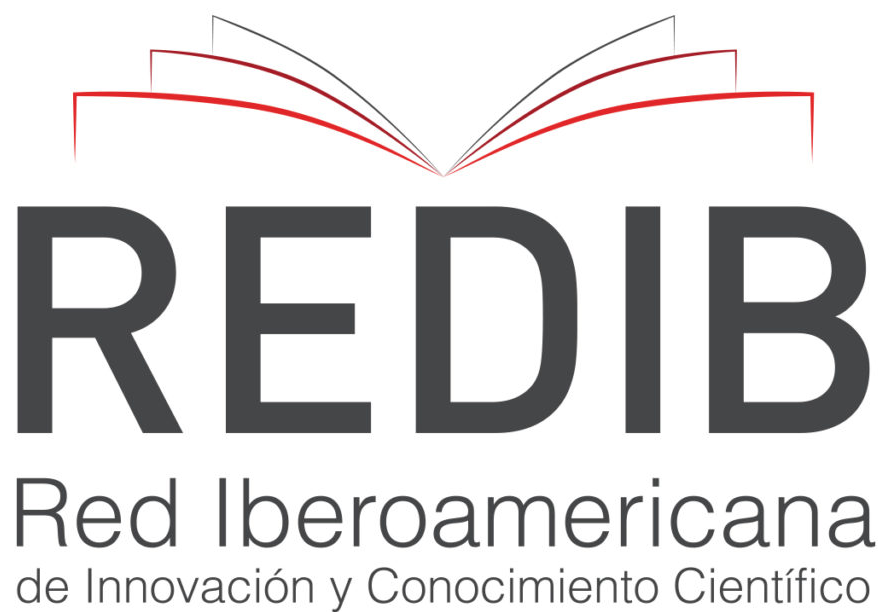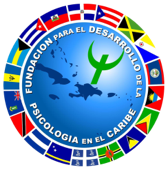Steps Towards a Pilot Study: Limitations and Opportunities of a Mental Health Response Survey for Puerto Rico Following Hurricane María
DOI:
https://doi.org/10.37226/rcp.v5i1.5507Palabras clave:
EnglishResumen
Hurricane Maria and its impact over the island of Puerto Rico have led to an unpresented need to address mental health among its residents; however, not much research has been able to examine the mental health response efforts across the country. We aimed to document the process and outcomes from a pilot study conducted on mental health response provided in Puerto Rico. Participants were active members of institutions that hold administrative, executive, and leadership roles within the field of healthcare or mental health. A pilot survey evaluated the level of mental health services provided after Hurricane Maria. Descriptive statistics (frequencies and percentages) were conducted. Zip codes as spatial reference data were collected for descriptive purposes. Challenges for implementation and subsequent phases, including outreach and data collection were reported. Overall, the amount of offered services for depression; anxiety followed by trauma was comparatively higher for the first period post-Maria; and remained a prevalent pattern for the subsequent periods. This pilot was also able to highlight the concerns by the responders for the inconsistent humanitarian aid and medical care. This study found that mental health services provided post-Hurricane Maria were not equally distributed around the island. Non-for-profit organizations were able to collaborate and assist in providing such services in the lack of corresponding government response. Future studies should consider a most robust sample that would use contemporary tools to collect data needed to evaluate temporal tendencies.
Citas
Adams, L. E., Vargas, L., Frasqueri-Quintana, V. M., Torres-Figueroa, X., Ryff, K., Sanchez-Gonzalez, L., Little, E., Ciam-paglio, K., Reyes Claudio, J. M., Ponton-Cruz, E., Santiago, W., Paz-Bailey, G., & Alvarado, L. I. (2019). Evaluation of Emer-gency Department-Based Surveillance Systems at 2 Healthcare Facilities After Hurricane Maria: Puerto Rico, 2017-2018. Disaster Medicine and Public Health Preparedness, 1–9. https://doi.org/10.1017/dmp.2019.79
Brislin, R. W. (1970). Back-Translation for Cross-Cultural Re-search. Journal of Cross-Cultural Psychology, 1(3), 185–216. https://doi.org/10.1177/135910457000100301
Bröring, A., Echterhoff, J., Jirka, S., Simonis, I., Everding, T., Stasch, C., Liang, S., & Lemmens, R. (2011). New generation Sensor Web Enablement. Sensors (Basel, Switzerland), 11(3), 2652–2699. https://doi.org/10.3390/s110302652
Carl, Y., Ortiz, E. R., Cintrón, M., Vega, A., Font, C., Stukova, M., Blundell, A., Gutierréz, A. N., & Burgos, R. F. (2019). Post-Hurricane Distress Scale (PHDS): A Novel Tool for First Re-sponders and Disaster Researchers. Disaster Medicine and Public Health Preparedness, 13(1), 82–89. https://doi.org/10.1017/dmp.2019.12
Chau, P. H., Gusmano, M. K., Cheng, J. O. Y., Cheung, S. H., & Woo, J. (2014). Social vulnerability index for the older people-Hong Kong and New York City as examples. Journal of Urban Health: Bulletin of the New York Academy of Medicine, 91(6), 1048–1064. https://doi.org/10.1007/s11524-014-9901-8
CITI Program, (n.d.). Disaster Planning for the Research Enterprise | CITI Program. https://about.citiprogram.org/en/course/disaster-planning-for-the-research-enterprise-dpre/
Elrod, C. L., Hamblen, J. L., & Norris, F. H. (2006). Challenges in Implementing Disaster Mental Health Programs: State Pro-gram Directors’ Perspectives. The ANNALS of the American Academy of Political and Social Science, 604(1), 152–170. https://doi.org/10.1177/0002716205285186
Everly, G. S., Lee McCabe, O., Semon, N. L., Thompson, C. B., & Links, J. M. (2014). The development of a model of psycholog-ical first aid for non-mental health trained public health per-sonnel: The Johns Hopkins RAPID-PFA. Journal of Public Health Management and Practice: JPHMP, 20 Suppl 5, S24-29. https://doi.org/10.1097/PHH.0000000000000065
Farber, D. A. (2018). Response and Recovery after Maria: Lessons for Disaster Law and Policy. Revista Jurídica UPR, 87(3), 743–771.
Ferré, I. M., Negrón, S., Shultz, J. M., Schwartz, S. J., Kossin, J. P., & Pantin, H. (2019). Hurricane Maria’s Impact on Punta San-tiago, Puerto Rico: Community Needs and Mental Health As-sessment Six Months Postimpact. Disaster Medicine and Public Health Preparedness, 13(1), 18–23. https://doi.org/10.1017/dmp.2018.103
Flanagan, B. E., Gregory, E. W., Hallisey, E. J., Heitgerd, J. L., & Lewis, B. (2011). A Social Vulnerability Index for Disaster Management. Journal of Homeland Security and Emergency Man-agement, 8(1). https://doi.org/10.2202/1547-7355.1792
Gong, J., Geng, J., & Chen, Z. (2015). Real-time GIS data model and sensor web service platform for environmental data management. International Journal of Health Geographics, 14, 2. https://doi.org/10.1186/1476-072X-14-2
House of Representatives. (2018). Bureaucratic Challenges to Hurricane Recovery in Puerto Rico, 115–74, Second, 1. https://www.congress.gov/event/115th-congress/house-event/108072
Karaye, I. M., Thompson, C., & Horney, J. A. (2019). Evacuation Shelter Deficits for Socially Vulnerable Texas Residents During Hurricane Harvey. Health Services Research and Managerial Epi-demiology, 6, 2333392819848885. https://doi.org/10.1177/2333392819848885
Kishore, N., Marqués, D., Mahmud, A., Kiang, M. V., Rodriguez, I., Fuller, A., Ebner, P., Sorensen, C., Racy, F., Lemery, J., Maas, L., Leaning, J., Irizarry, R. A., Balsari, S., & Buckee, C. O. (2018). Mortality in Puerto Rico after Hurricane Maria. The New England Journal of Medicine, 379(2), 162–170. https://doi.org/10.1056/NEJMsa1803972
Martinez, V., Severino, K., Hinojosa, J., Roman, N., & Melendez, E. (2018). Puerto Rico Post Maria Report (Rebuild Puerto Rico, pp. 1–24). Centro de Estudios Puertorriqueños. https://centropr.hunter.cuny.edu/events-news/rebuild-puerto-rico/puerto-rico-post-maria-report
New York Times. (2020, April 29). Puerto Rico Coronavirus Map and Case Count—The New York Times [News]. https://www.nytimes.com/interactive/2020/us/puerto-rico-coronavirus-cases.html
Orengo-Aguayo, R., Stewart, R. W., de Arellano, M. A., Suárez-Kindy, J. L., & Young, J. (2019). Disaster Exposure and Mental Health Among Puerto Rican Youths After Hurricane Maria. JAMA Network Open, 2(4). https://doi.org/10.1001/jamanetworkopen.2019.2619
Pedraza, L. (personal communication, May 7, 2018).
Robles, F. (2018, August 9). Puerto Rico reconoce 1427 muertes por el huracán María, pero no lo hace oficial—The New York Times [News]. https://www.nytimes.com/es/2018/08/09/espanol/america-latina/puerto-rico-muertos-huracan-maria.html
Rodgers, C. (personal communication, May 25, 2018).
Rodríguez-Díaz, C. E. (2018). Maria in Puerto Rico: Natural Disas-ter in a Colonial Archipelago. American Journal of Public Health, 108(1), 30–32. https://doi.org/10.2105/AJPH.2017.304198
Santos-Burgoa, C., Sandberg, J., Suárez, E., Goldman-Hawes, A., Zeger, S., Garcia-Meza, A., Pérez, C. M., Estrada-Merly, N., Colón-Ramos, U., Nazario, C. M., Andrade, E., Roess, A., & Goldman, L. (2018). Differential and persistent risk of excess mortality from Hurricane Maria in Puerto Rico: A time-series analysis. The Lancet Planetary Health, 2(11), e478–e488. https://doi.org/10.1016/S2542-5196(18)30209-2
Shin, P., Sharac, J., Gunsalus, R., Leifer, B., & Rosenbaum, S. (2017). Puerto Rico’s Community Health Centers: Struggling to Recover in the Wake of Hurricane Maria | RCHN CHF (No. 50). Geiger Gibson/RCHN Community Health Foundation Re-search Collaborative. https://www.rchnfoundation.org/?p=6156
Shultz, J. M., & Galea, S. (2017). Preparing for the Next Harvey, Irma, or Maria—Addressing Research Gaps. The New England Journal of Medicine, 377(19), 1804–1806. https://doi.org/10.1056/NEJMp1712854
Tabak L. (2016). Final NIH Policy on the Use of a Single Institu-tional Review Board for Multi-Site Research. Federal Register, 81(119), 40325-40331.
Van Der Elst, N., Hardebeck, J. L., & Michael, A. J. (2020). Poten-tial duration of aftershocks of the 2020 southwestern Puerto Rico earthquake (USGS Numbered Series No. 2020–1009; Open-File Report). U.S. Geological Survey. http://pubs.er.usgs.gov/publication/ofr20201009
Willison, C. E., Singer, P. M., Creary, M. S., & Greer, S. L. (2019). Quantifying inequities in US federal response to hurricane disaster in Texas and Florida compared with Puerto Rico. BMJ Global Health, 4(1), e001191. https://doi.org/10.1136/bmjgh-2018-001191
Wong, P. W., & Parton, H. B. (2020). Monitoring Emergency De-partment Visits From Puerto Rico in the Aftermath of Hurri-cane Maria Using Syndromic Surveillance—New York City, 2017. Disaster Medicine and Public Health Preparedness, 14(1), 44–48. https://doi.org/10.1017/dmp.2019.102
Descargas
Publicado
Cómo citar
Número
Sección
Licencia
Derechos de autor 2021 Leonell Torres Pagan, Jennifer Hinojosa, Luis Abreu-Rosario , Carissa Caban-Alemán

Esta obra está bajo una licencia internacional Creative Commons Atribución 4.0.







